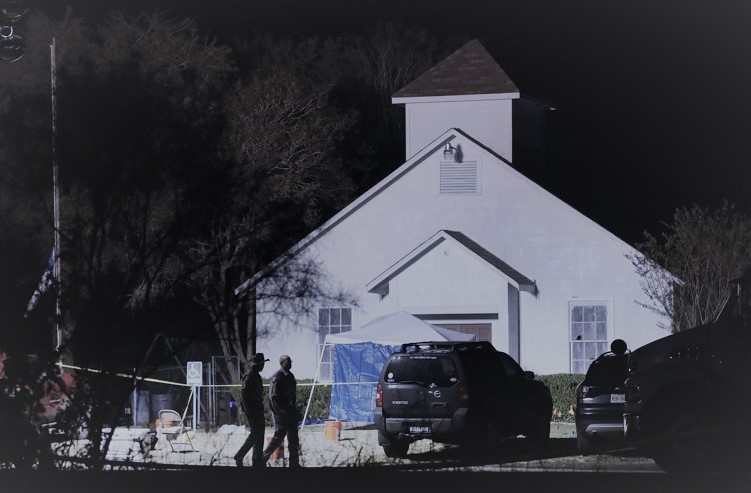 It always helps when planning a vacation to talk to someone who has already been to the desired destination. They can tell you about what to see as well as what to avoid. The same is true with restaurants, is it not? How many of you have decided not to go to a certain eating establishment after listening to a less than favorable report by someone who had eaten there? Or, on the other hand, how many of you couldn't wait to go to a restaurant because someone raved about its food?
It always helps when planning a vacation to talk to someone who has already been to the desired destination. They can tell you about what to see as well as what to avoid. The same is true with restaurants, is it not? How many of you have decided not to go to a certain eating establishment after listening to a less than favorable report by someone who had eaten there? Or, on the other hand, how many of you couldn't wait to go to a restaurant because someone raved about its food?
When it comes to heaven, we have someone who has been there. I am referring to Jesus, of course. When talking to Nicodemus, Jesus highlighted the fact He had descended from heaven to establish His authority for speaking about heavenly things (John 3:12-13).
When Jesus talked about our future, about eternity, He did so with unique authority as not only One who came from heaven, but also as One who rose from the dead.
What exactly did Jesus say about eternity, about our future?
Jesus promised to take us to His Father’s House: Jesus said this in John 14:3, “And if I go and prepare a place for you, I will come again and will take you to myself, that where I am you may be also.” In John 14:2-3, Jesus promised to take His followers, represented by His disciples, to the place in His Father’s house He was going to prepare for them. This very much seems to be a private return of Jesus for His own that differs substantially from His quite public return to earth, which He described in Matthew 24:29-31.
Jesus gave us signs of the end times: During the week leading up to Jesus’ crucifixion, the disciples asked Jesus about the signs of His coming and the end of the age. Matthew 24:3-14 records Jesus’ answer with the list of signs He provided to them. Since these things came from the One who could see ahead to His coming, we should not so easily brush them aside as many do today.
So many believers today pay so little attention to what Jesus said in Matthew 24 despite the fact that His words are unfolding in an amazing way throughout the world today with uncanny preciseness. We are living in the time Jesus spoke about in these verses.
Jesus foretold the future desecration of the temple by the antichrist: Jesus also verified Daniel’s prophecy regarding a future world leader, the antichrist, who would put an end to sacrifice at the temple halfway through the tribulation. Jesus referred to this as the “abomination of desolation spoken of by the prophet Daniel” (see Dan. 9:27, Matt. 24:15).
In this verse, Jesus confirmed that that there will be antichrist that will rise to power in the last days and he will defile the temple halfway through the tribulation, just as Daniel predicted. This has not happened since the time of Jesus; it awaits a future fulfillment when Israel will rebuild the temple, the antichrist will establish a covenant that will include Israel, and this leader will break his pledge of peace by defiling the temple halfway through the tribulation period.
Jesus predicted a time of great tribulation: In this same passage, Jesus also predicted a time of “great tribulation, such as has not been from the beginning of the world until now, no, and never will be” (Matt. 24:21). In the next verse, He states that if this time was not cut short, presumably by His return to earth, all humanity would perish. Jesus said that no one would survive this time apart from His coming, which will stop the progression of events that would wipe out human life.
This is the time John spoke about in the book of Revelation. In chapters 6-19, the apostle adds details to this terrible time in human history.
Jesus described His glorious return to earth: I love Jesus’ own description of is glorious return to earth in Mathew 24:30, “Then will appear in heaven the sign of the Son of Man, and then all the tribes of the earth will mourn, and they will see the Son of Man coming on the clouds of heaven with power and great glory.” Jesus entered the world as a helpless baby during His first coming. For His second coming, He will return in spectacular fashion with great power and glory as the entire world watches.
Jesus spoke of His future millennial reign: At this point you might be wondering where Jesus talked about His future millennial reign. While He did not specify it as clearly as John did in Revelation 20:1-6, he certainly implied it in key passages such as Matthew 26.
During Jesus’ trial before the Sanhedrin, the High Priest demanded that Jesus tell him whether or not He was the long awaited Messiah. “Jesus said to him, ‘You have said so. But I tell you, from now on you will see the Son of Man seated at the right hand of Power and coming on the clouds of heaven’” (Matt. 26:64). Jesus was quoting from Daniel 7:13-14, a passage that prophesies the Father giving the “son of man” a physical kingdom where “all peoples, nations, and languages should serve him.”
By quoting from this passage in Daniel, Jesus affirms that one day He will be the King over the long awaited physical kingdom that will include the nations of the world.
Jesus warned people about the existence of hell: John Lennon tried to imagine life without an eternity, one without the existence of heaven and hell. In other words, our existence would end after our brief time on earth.
Jesus, however, acknowledged both the existence of heaven and hell. In fact, no one in the Bible talked more about God’s final judgment than Jesus. Seven times Jesus warned people about the existence of hell referring to it as a place of “weeping and gnashing of teeth.” Jesus repeatedly warned people of the dire consequences of rejecting Him and His gracious and loving promise of eternal life.
Jesus assured His followers of eternal life in paradise: Jesus did not come for the purpose of condemning the world, however, but for the purpose of giving His life as a “ransom for many” so that “whoever believes in him should not perish but have eternal life (Mark 10:45; John 3:16-17). So yes, while there are frightful consequences of rejecting Jesus’ gracious offer of life, there is the promise of paradise for all those who turn to Him for salvation from the penalty of their sins. Even for the thief crucified next to Him received this assurance after acknowledging Jesus' ability to save him from his sins (Luke 23:40-43).
Jesus commanded us to watch for His return: In Matthew 24:44 Jesus said this, “Therefore you also must be ready, for the Son of Man is coming at an hour you do not expect.” A little later in the same discourse He added these words, “Watch therefore, for you know neither the day nor the hour” (25:13). The Lord urges His followers, us, to watch for His return. This is not just something for the few on the fringe, but for all who call upon His name.
Jesus’ last recorded words to His church are these, “Surely I am coming soon.” The Greek word for “soon” is better translated “quickly.” It’s clear from His last words to us that Jesus desired for us to watch for His John 14:3 return. If this was true then, how much more today as we see the signs of the approaching tribulation multiply around us?
Why does all this matter? Do Jesus’ words carry more authority than the rest of the New Testament? No, I believe it’s all Jesus’ revelation to the church of His deity, the saving Gospel message, and the joyous eternity He is preparing for all of us who belong to Him. What we believe about the Gospel and our future after this life starts with the words and saving work of Jesus to which He added further revelation through His apostles in the first century.
These things matter so much today because so many professing believers want a Jesus who did not really say or mean several of the things listed above. They want Jesus, but deny the urgency of His saving message, the existence of hell, and His warnings of judgment. They want a Jesus of their own making, not the One revealed on the pages of Scripture.
We can trust Jesus' words about all these things because He came from eternity and He rose from the dead, just as He said He would. This establishes His credibility beyond anyone else who has ever lived.
Oh, there is one more thing that is absolutely essential to add that many also deny . . . .
Jesus said He is the only way to the Father, the only way to eternal life: In John 14:6 Jesus said these words, “I am the way, and the truth, and the life. No one comes to the Father except through me.”
If you are trusting another Jesus, one who would never deny anyone entrance to heaven, please turn to the true Jesus, the One who is truly the only way to eternal life, who will be true to all His words that I have listed above. He will surely save those who belong to Him and bring them into the joy of eternity.
If you are trusting your good works or being a good person to get you to heaven, please know that Jesus died for your sins precisely because your good works could never merit you any favor with the Father. He is the only way to the Father; He is the only way to eternal life.
The cross proves how much Jesus loves us; He was willing to die in our place.
It’s Jesus’ righteousness that counts, not our own. 2 Corinthians 5:21 says, “For our sake he made him to be sin who knew no sin, so that in him we might become the righteousness of God.” The cross proves how much Jesus loves us; He was willing to die in our place. If you have not yet put your faith in Jesus alone for the forgiveness of your sins, please do not reject His gracious and loving offer of life any longer.
The time of the end is rapidly approaching, please turn to the Savior before it is too late. Jesus said He would return when we do not expect.







 Is there anything around us today that we could describe as “unshakable?” Politicians, movies stars, and leaders continually prove that they are frail human beings just like everyone else.
Is there anything around us today that we could describe as “unshakable?” Politicians, movies stars, and leaders continually prove that they are frail human beings just like everyone else. Last night I saw an extraordinarily good documentary called Genesis: Paradise Lost that was both informative and rich in proof of the Genesis account. I highly recommend this movie, which may be playing in a theater near you this coming Thursday night, November 16.
Last night I saw an extraordinarily good documentary called Genesis: Paradise Lost that was both informative and rich in proof of the Genesis account. I highly recommend this movie, which may be playing in a theater near you this coming Thursday night, November 16. As I reflect on the Sutherland Springs shooting this past Sunday, the word “brutal” comes to my mind. In 2 Timothy 3:2 the Apostle Paul says that people will become “heartless, unappeasable . . . brutal . . . treacherous, reckless” during the last days. Is this not what we are seeing throughout our world to an ever increasing degree?
As I reflect on the Sutherland Springs shooting this past Sunday, the word “brutal” comes to my mind. In 2 Timothy 3:2 the Apostle Paul says that people will become “heartless, unappeasable . . . brutal . . . treacherous, reckless” during the last days. Is this not what we are seeing throughout our world to an ever increasing degree? The apostle Paul begins his list describing the characteristics of people who make up the “perilous times” of 2 Timothy 3 with the phrase “lovers of self.” Does this not sum up the Facebook generation? For many, posting is all about drawing attention to themselves, their lives, and their opinions. It’s all about making them look good. I have not been immune to this temptation myself.
The apostle Paul begins his list describing the characteristics of people who make up the “perilous times” of 2 Timothy 3 with the phrase “lovers of self.” Does this not sum up the Facebook generation? For many, posting is all about drawing attention to themselves, their lives, and their opinions. It’s all about making them look good. I have not been immune to this temptation myself. This coming October 31st marks the five hundred year anniversary of the beginning of the Reformation. On October 31, 1517 Martin Luther posted his 95 Theses on the door of the Wittenberg Castle Church in Germany. These 95 Theses became the foundation of the Protestant Reformation, which for many restored the biblical ideal of justification by faith and thereby the purity of the Gospel message.
This coming October 31st marks the five hundred year anniversary of the beginning of the Reformation. On October 31, 1517 Martin Luther posted his 95 Theses on the door of the Wittenberg Castle Church in Germany. These 95 Theses became the foundation of the Protestant Reformation, which for many restored the biblical ideal of justification by faith and thereby the purity of the Gospel message. “We appear to be suffering a great crisis of hope.” Those words, written by John Eldredge in his September 2017 newsletter, aptly sum up our nation today.
“We appear to be suffering a great crisis of hope.” Those words, written by John Eldredge in his September 2017 newsletter, aptly sum up our nation today. During the past several weeks, I have been writing about the resurrection and what it means regarding our beliefs about Jesus, His authority, His teaching, and His views of Scripture. I believe this represents a missing link both in the church and in our nation today. So many want to claim Jesus as a good teacher, but yet fail to believe what He says about so many things. Many Christians worship Him while at the same time expressing disbelief in many of His teachings.
During the past several weeks, I have been writing about the resurrection and what it means regarding our beliefs about Jesus, His authority, His teaching, and His views of Scripture. I believe this represents a missing link both in the church and in our nation today. So many want to claim Jesus as a good teacher, but yet fail to believe what He says about so many things. Many Christians worship Him while at the same time expressing disbelief in many of His teachings. When I first heard the expression, my immediate thought was “that’s it!” This fits perfectly with what I see.
When I first heard the expression, my immediate thought was “that’s it!” This fits perfectly with what I see.



 Do you remember waiting for a train to arrive? For me, my most vivid memory of this is anticipating the arrival of a commuter train at the Foggy Bottom Metro Station in Washington, D.C. Besides the electronic clock that counted down the minutes until its arrival, I often watched for other signs of the train’s imminent arrival.
Do you remember waiting for a train to arrive? For me, my most vivid memory of this is anticipating the arrival of a commuter train at the Foggy Bottom Metro Station in Washington, D.C. Besides the electronic clock that counted down the minutes until its arrival, I often watched for other signs of the train’s imminent arrival. Recently, we went with friends to see the movie In Our Hands: Battle for Jerusalem. The movie showed the background to and the fight for the city during the Six Day Way in 1967. Perhaps the most striking aspect of the movie was the joy of the soldiers upon reaching the ancient outer wall of the temple.
Recently, we went with friends to see the movie In Our Hands: Battle for Jerusalem. The movie showed the background to and the fight for the city during the Six Day Way in 1967. Perhaps the most striking aspect of the movie was the joy of the soldiers upon reaching the ancient outer wall of the temple. Of all the late night comedians I watched over the years, I liked Johnny Carson the best. I liked his humor and still remember several of his skits.
Of all the late night comedians I watched over the years, I liked Johnny Carson the best. I liked his humor and still remember several of his skits.